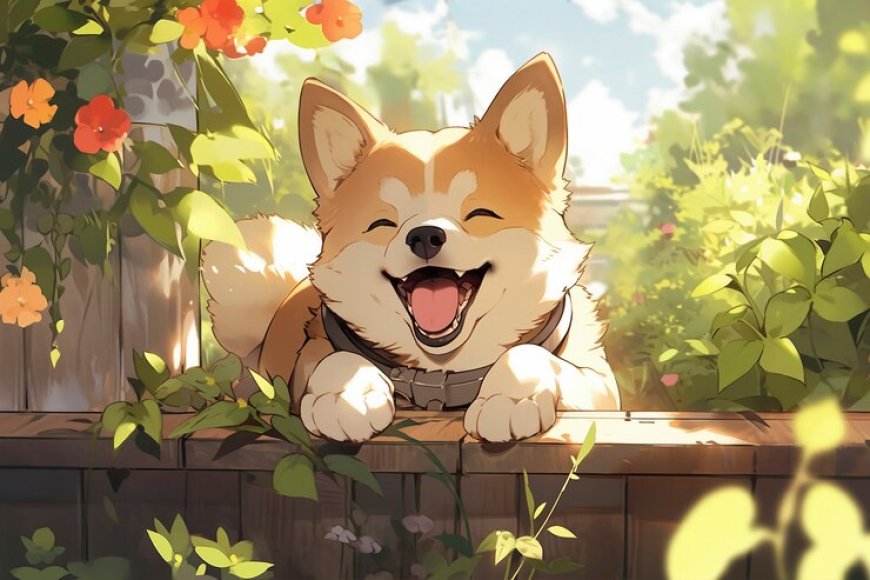The Shiba Inu: A Unique Blend of History, Personality, and Care
Discover the unique charm of the Shiba Inu! Explore their history, characteristics, and essential care tips for this spirited breed.

The Shiba Inu, a small but mighty breed originating from Japan, has captivated dog lovers worldwide with its spirited personality and striking appearance. Often compared to a fox due to its sharp, triangular ears and curled tail, this breed embodies a unique mix of elegance and playfulness. In this blog post, we will explore the rich history of the Shiba Inu, its distinctive characteristics, and essential care tips for potential owners.
A Brief History of the Shiba Inu
The Shiba Inu has a storied past that dates back over 2,000 years. Originally bred for hunting small game in the mountainous regions of Japan, the breed is one of the oldest and smallest native Japanese dog breeds. The name "Shiba Inu" translates to "brushwood dog," a reference to the breed's ability to navigate through thick brush while hunting.
During World War II, the Shiba Inu faced near extinction due to the war and post-war breeding practices. Fortunately, dedicated enthusiasts and breeders worked diligently to revive the breed, leading to its recognition by the Japanese Kennel Club in 1934. The Shiba Inu eventually gained popularity beyond Japan and made its way to the United States in the 1950s. Today, the Shiba Inu is one of the most popular dog breeds in America, known for its loyalty and spirited demeanor.
Distinctive Characteristics
The Shiba Inu is recognized for its striking physical features and dynamic personality. Standing about 13.5 to 16.5 inches tall and weighing between 17 to 23 pounds, the breed is compact yet muscular. Its double coat comes in various colors, including red, sesame (red with black-tipped hairs), black and tan, and cream, showcasing a well-defined appearance.
One of the most notable characteristics of the Shiba Inu is its fox-like face, with almond-shaped eyes that convey a sense of intelligence and independence. Their ears stand erect, enhancing their alertness and curiosity. Shiba Inus are known for their spirited and confident nature, often displaying a playful demeanor. They possess a strong will and can be somewhat stubborn, making consistent training essential for a well-behaved companion.
Temperament and Behavior
The Shiba Inu is known for its lively and bold personality. They are intelligent and can be easily trained, but their independent nature may lead to occasional stubbornness. Socialization is crucial for Shiba Inus, as it helps them become well-adjusted and friendly with other dogs and people. Early exposure to various environments, sounds, and experiences will foster a confident and adaptable dog.
Despite their spirited personality, Shiba Inus are also known for their strong bond with their owners. They can be aloof with strangers, but their loyalty to family members is unwavering. This breed is known for its "Shiba scream," a unique vocalization that often surprises new owners. This high-pitched cry is typically expressed when a Shiba Inu is unhappy, making it important for owners to understand their dog’s needs and feelings.
Care and Maintenance
Caring for a Shiba Inu requires commitment and attention. Their double coat sheds seasonally, so regular grooming is essential to keep their coat healthy and minimize shedding. Brushing their coat at least once a week can help reduce loose hair and prevent matting. During shedding season, more frequent brushing may be necessary.
Shiba Inus are energetic dogs that require regular exercise to keep them physically and mentally stimulated. Daily walks, play sessions, and interactive toys can help meet their energy needs. Mental stimulation is also crucial, as Shiba Inus enjoy challenges. Puzzle toys, obedience training, and agility courses can provide the mental engagement they thrive on.
Health-wise, Shiba Inus are generally robust, but they are prone to certain health issues, including hip dysplasia and patellar luxation. Regular veterinary check-ups, a balanced diet, and exercise can help ensure a long, healthy life. Additionally, it’s essential to be aware of their dietary needs, as Shiba Inus can be prone to obesity if overfed.
Conclusion
The Shiba Inu is a remarkable breed that combines a rich history, unique characteristics, and a lively personality. With their spirited nature and loyalty, they make excellent companions for those who appreciate their independence and playful spirit. However, potential owners should be prepared for the challenges of training and care that come with this breed.
If you’re considering welcoming a Shiba Inu into your home, ensure you are ready for the commitment. With proper training, socialization, and care, your Shiba Inu can become a beloved member of your family, bringing joy and companionship for years to come. Embrace the journey with this spirited breed, and you’ll find that their charming quirks and loyal demeanor will enrich your life in unexpected ways.

 Digital Talks
Digital Talks 





